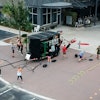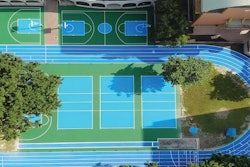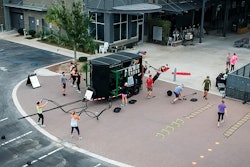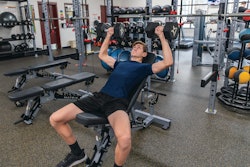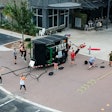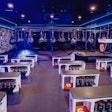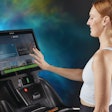Copyright 2018 Gannett Company, Inc.
All Rights Reserved
USA TODAY
When Tara Gilad came across an empty Subway sandwich shop at the Nut Tree Plaza in Vacaville, Calif., she saw an opportunity.
Now Gilad, founder of the healthy food chain Vitality Bowls, will be selling her soups, Acai meals and smoothies out of the former sandwich shop. And she has her eye on a few of the roughly 500 other locations Subway is planning to close this year.
"The space itself is desirable for us because they're usually the same size," Gilad says. "It is an opportunity for us."
In the world of retail, it's increasingly out with the old — traditional department stores or aging fast-food chains — and in with new wellness-oriented gyms and eateries that are in vogue among consumers.
A growing number of Pilates studios, juice shops and other fitness- and health-focused businesses are filling the void as companies such as Sears, J.C. Penney, Toys R Us and Subway shutter locations.
"We are definitely seeing an increase in fitness- and lifestyle-oriented tenants moving into space previously occupied by retail tenants," says Stephen Lebovitz, CEO of CBL & Associates, which owns and manages 119 retail properties.
The shift is not only being spurred by retail owners catering to the changing tastes of customers who want to do more than shop when they hit the mall, but wellness businesses that desire the foot traffic and ready-made storefronts left behind when traditional stores and restaurants make an exit.
Gilad says there currently are 50 Vitality Bowls around the country, and several have found a home in storefronts vacated by frozen yogurt and cupcake businesses.
"Typically they have all the plumbing and electrical we need," she says of such locations, "so (as) a remodel, that can save us thousands of dollars.''
Shaun Grove, president of the Club Pilates fitness chain, expects that in roughly the next year, 5 percent to 10 percent of their clubs will be located in spaces that once housed retailers.
At outdoor malls, "we find more of these Toys R Us (stores) and the Sears and the Blockbusters that have gone out of business," Grove says.
"What we're seeing — and we have been seeing over the last several years — is these landlords wanting to break up those centers into four or five pieces and bring in different boutique fitness concepts that are all very complementary to each other."
Fitness isn't the only non-traditional business moving into empty storefronts. Offices, apartments and family attractions such as aquariums or restaurants that feature bowling and other activities are also sprouting in malls and outdoor shopping centers.
CBL Properties, which has real-estate holdings in 27 states, said in the first quarter of this year, 70 percent of its new leasing activity was for non-retail uses. And a survey by the International Council of Shopping Centers found 65 percent of shoppers generally visit non-retail tenants while at the mall.
But wellness-oriented eateries and fitness studios are playing an important role in filling empty retail space. At CBL's York Galleria in York, Pa., a one-time J.C. Penney houses a Golds Gym along with clothing stores Marshall's and H&M. And a Planet Fitness is being built as part of the redevelopment of another J.C. Penney at CBL's Eastland Mall in Bloomington, Ill.
GGP, a real estate company with 125 retail properties throughout the U.S., estimates that nearly three-quarters of a million square feet of its retail space will be signed to fitness-oriented businesses such as the cycling workout chain CycleBar or Fit Body Bootcamp by the end of 2018.
"Our job is to figure out ... what does the American consumer want," says Melinda Holland, senior vice president of business development at GGP. "Right now it's all about fitness and it's about food and it's about healthy lifestyle. So that's the type of retailer that we're going to try and bring into our shopping centers."
Fitness studios can be magnets for other lifestyle tenants, such as apparel seller Lululemon, or exercise bike business Peloton, Holland says, creating a mix that is particularly appealing to shoppers pursuing a healthier lifestyle.
At GGP's Otay Ranch Town Center in Chula Vista, Calif., five fitness retailers are either operating or preparing to open. Next, "we're working on the food and juice bars that go along with (them)," Holland says, noting that GGP centers have more than 60 smoothie and juice bars.
Grove says that when negotiating with mall owners, he will often bring up other chains that are under his parent company Xponential Fitness. "We can go to our Cycle Bar franchisees ... our Row House and Stretch Labs and tell the landlord, 'We can fill this whole space up,'" Grove says.
"So it becomes advantageous for these landlords to really work with us because we have the potential to fill up a lot of these fitness rows just with the brands that we own."
Read More of Today's AB Headlines
Subscribe to Our Daily E-Newsletter
Terms and Conditions Privacy Policy











